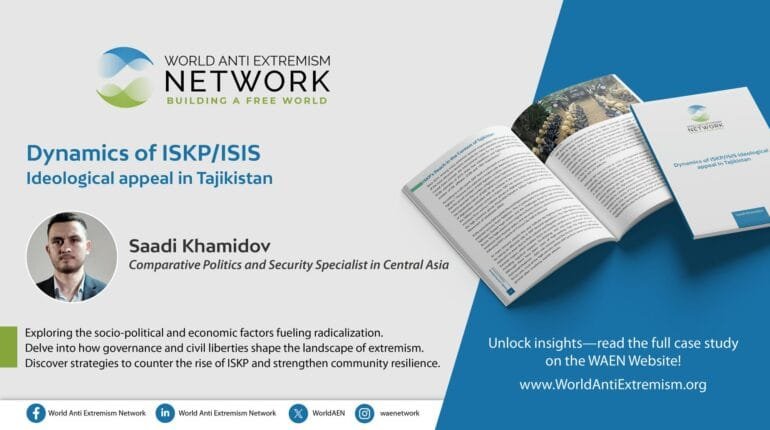
In today’s rapidly shifting global landscape, violent extremism remains a profound threat to diverse, multi-cultural societies.
In an insightful case study by Saadi Khamidov, readers are invited to explore how ISIS and its Central Asian affiliate, ISKP, exploit economic hardship, repression, and alienation in Tajikistan to recruit vulnerable individuals and sustain their operations through illicit financing networks. Discover about the complex contrast between the extremist approach of ISIS/ISKP and the peaceful, reformist principles of the Islamic Renaissance Party of Tajikistan (IRPT), offering a unique glimpse into the resilience of ideological conflicts. Why are certain populations in Tajikistan drawn to ISKP’s extremist appeal? Or What socio-economic factors in Tajikistan fuel ISKP’s recruitment efforts?
Want to know the answers?
Dive into this case study for a closer look at one of today’s most pressing security challenges and the path toward building resilient communities.
About the author

Saadi Khamidov is an independent researcher from Tajikistan specializing in comparative politics, democracy, security, and developmental issues in Central Asia and Eurasia. He earned his Master’s degree in Political Science and International Relations from OSCE Academy.
Saadi also teaches philosophy courses tailored to computer science programs at Ajou University and IT Park University in Tashkent. His work has been featured in Diplomat Magazine, and he has contributed articles to peer-reviewed Italian journals such as Matrioska and geopolitica.info, on topics such as security and the sociopolitical transformation of Central Asia, the prospects for democratization, and the state of government institutions and corruption amid increasing Chinese economic influence in the region. His Master’s thesis focused on a comparative analysis of political regime transitions in Georgia and Tajikistan, exploring the obstacles to democratic development.

